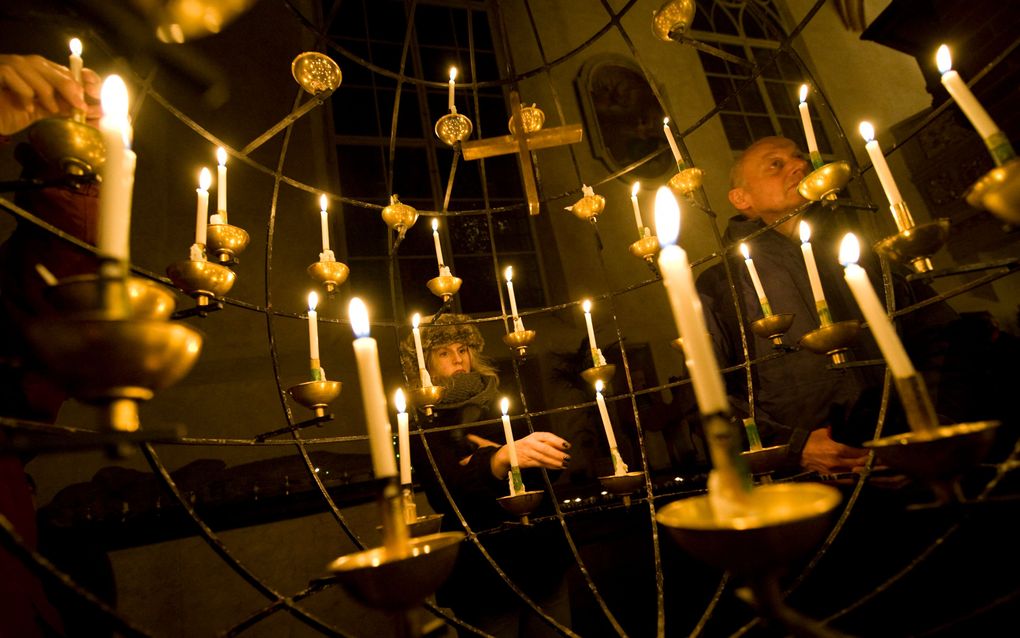Swedish viewers upset after God was deleted from Christmas carol
20-12-2021
Northern Europe
CNE.news

Swedish people light candles after an evening Lucia concert that drew 1200 spectators at the Stockholm's Cathedral on December 13, 2010 in Stockholm, Sweden. Photo AFP, Jonathan Nackstrand
Northern Europe
A controversy has arisen in Sweden over the performance of a well-known Christmas song. When the music was broadcast on television earlier this month, it appeared that all references to God had been left out.
The song in question is "Julvisa" by the Finnish writer Zacharias Topelius (1818-1898). The music is also known by the name of its opening line, "Give me no glory, no gold, no splendour (Giv mig ej glans, ej guld, ej prakt)". The Christmas carol, set to music by Jean Sibelius in 1895, can be read as a prayer for God's peace. Julvisa is one of Finland's most beloved Christmas hymns and is included in, among others, the Swedish Psalm Book and the Salvation Army Songbook.
When Julvisa was broadcast on television on December 13, all references to Christianity had been removed. Singer Malin Foxdal had replaced "God's glory" with "light" and "King" with "love".
The hymn was performed on Luciamorgon on Lucia Day, during which the Lucia train, a temporarily composed entourage, performs traditional Swedish music within a given framework. Lucia is a holiday celebrated on December 13 and the name of the holiday's main character. In Sweden, Lucia is included with Advent in the preparations for the Christmas celebration.
Reactions
After the broadcast, there were critical reactions. In the Norwegian newspaper Dagen, Ylva Gerdås, who is a singer and choir leader herself, said that it is not correct to make changes to classical texts. "I think it is disrespectful to redo songs in that way. It's like changing the national anthem", she said. According to Gerdås, the song is a tribute to Jesus and loses its purpose and meaning if you sing "light" instead of "God".
Responsible for the changes made is singer Malin Foxdal. In an email to Dagen, she writes: "I have reworked the text to make it closer to me and hopefully closer to the listeners. To make it feel like the words come from the heart. I wanted to capture the message of love and the longing for peace and tranquillity that I think is central to this song. I hope the spirit comes through".
Legal
Although not everyone appreciates changes made to original texts, little can be done about it legally. Seventy years after the person who created the work has died, copyright no longer applies Dagen writes. On the other hand, the newspaper continues, there is something called the classic protection, which means a ban on an inappropriate distortion of older works after the author's death. However, this seems to be challenging to be convicted of.
In that case, the Swedish Academy invokes the protection of the classics if it is a matter of song or poetry. This spring, they gathered the law on classic protection connected to right-wing extremist groups reproducing a well-known poem on their websites. There was no conviction.
Whether the exchanges in Sibelius and Topelius' "Christmas carol" during Luciamorgon can be seen as "inappropriate distortion" is unclear. Dagen has sought the Swedish Academy's permanent secretary for questions about classic protection without success.


